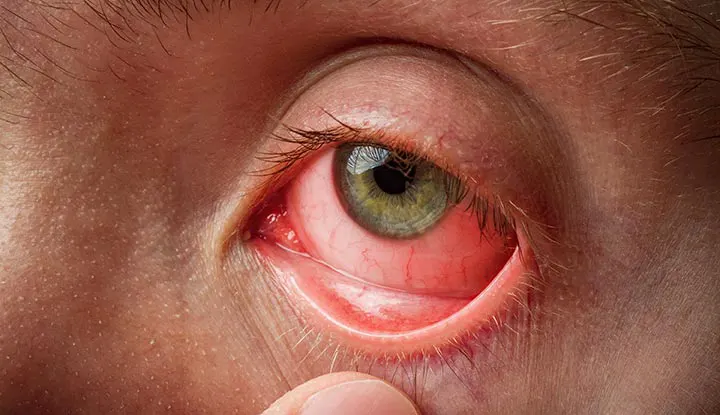Experts warned people to avoid the indiscriminate use of antibiotics and steroids to treat ‘conjunctivitis’, commonly known as pink eye, and advised them to avoid self-medication as it may complicate the ailment or even damage the cornea.
Steroids are a man-made version of chemicals, known as hormones, that are made naturally in the human body. Steroids are designed to act like these hormones to reduce inflammation. They’re also known as corticosteroids, and are different to anabolic steroids used by bodybuilders and athletes.
Steroids won’t cure your condition, but they’re very good at reducing inflammation and will ease symptoms such as swelling, pain and stiffness.
Usually inflammation is the body’s natural reaction to infection or bacteria. Your immune system produces extra fluid to fight infections or bacteria, which causes swelling, redness and heat in the affected area.
You might have noticed this if you have had a cut or wound on your skin. In some conditions, such as rheumatoid arthritis, the immune system produces inflammation in the joints or other parts of the body by mistake, which can cause permanent damage if left untreated. Steroids can be used to reduce this immune reaction. Steroids are usually only given for a short time to quickly treat flare-ups of your condition. Depending on which condition you have and what dose you’re prescribed, you may notice an improvement in your symptoms within a few days.
This page is about steroids that can be taken as tablets, liquids, creams and eye drops and ointments. Information about steroid injections is covered on a different page.
You might not be able to start steroids if you have an infection, or if you have any wounds on your body, as steroids might delay these getting better or cover up some of your symptoms. Steroids might affect some medical conditions, such as diabetes, heart or blood pressure problems, or mental health issues. If you have any of these conditions, the person treating you will need to make sure the steroids aren’t making the condition worse. If you have systemic sclerosis, prednisolone could cause problems with your kidneys at certain doses.










